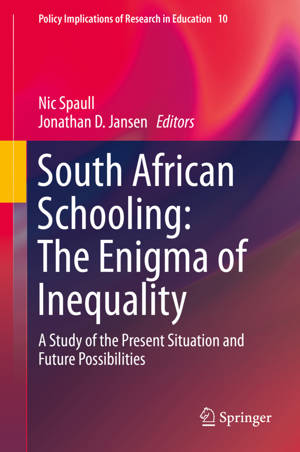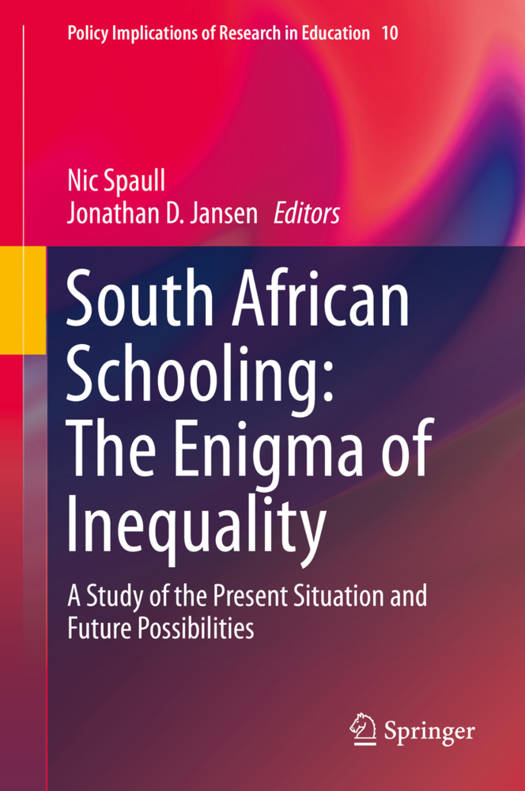
- Afhalen na 1 uur in een winkel met voorraad
- In januari gratis thuislevering in België
- Ruim aanbod met 7 miljoen producten
- Afhalen na 1 uur in een winkel met voorraad
- In januari gratis thuislevering in België
- Ruim aanbod met 7 miljoen producten
South African Schooling: The Enigma of Inequality
A Study of the Present Situation and Future Possibilities
Omschrijving
This volume brings together many of South Africa's leading scholars of education and covers the full range of South African schooling: from financing and policy reform to in-depth discussions of literacy, numeracy, teacher development and curriculum change. The book moves beyond a historical analysis and provides an inside view of the questions South African scholars are now grappling with: Are there different and preferential equilibria we have not yet thought of or explored, and if so what are they? In practical terms, how does one get to a more equitable distribution of teachers, resources and learning outcomes? While decidedly local, these questions resonate throughout the developing world.
South Africa today is the most unequal country in the world. The richest 10% of South Africans lay claim to 65% of national income and 90% of national wealth. This is the largest 90-10 gap in the world, and one that is reflected in the schooling system. Two decades after apartheid it is still the case that the life chances of most South African children are determined not by their ability or the result of hard-work and determination, but instead by the colour of their skin, the province of their birth, and the wealth of their parents. Looking back on almost three decades of democracy in South Africa, it is this stubbornness of inequality and its patterns of persistence that demands explanation, justification and analysis. "This is a landmark book on basic education in South Africa, an essential volume for those interested in learning outcomes and their inequality in South Africa. The various chapters present conceptually and empirically sophisticated analyses of learning outcomes across divisions of race, class, and place. The book brings together the wealth of decades of research output from top quality researchers to explore what has improved, what has not, and why."Prof Lant Pritchett, Harvard University
"There is much wisdom in this collection from many of the best education analysts in South Africa. No surprise that they conclude that without a large and sustained expansion in well-trained teachers, early childhood education, and adequate school resources, South Africa will continue to sacrifice its people's future to maintaining the privileges of the few."
Prof Martin Carnoy, Stanford University
"Altogether, one can derive from this very valuable volume, if not an exact blueprint for the future, then certainly at least a crucial and evidence-based itinerary for the next few steps."
Dr Luis Crouch, RTISpecificaties
Betrokkenen
- Uitgeverij:
Inhoud
- Aantal bladzijden:
- 384
- Taal:
- Engels
- Reeks:
- Reeksnummer:
- nr. 10
Eigenschappen
- Productcode (EAN):
- 9783030188108
- Verschijningsdatum:
- 14/11/2019
- Uitvoering:
- Hardcover
- Formaat:
- Genaaid
- Afmetingen:
- 156 mm x 234 mm
- Gewicht:
- 725 g

Alleen bij Standaard Boekhandel
Beoordelingen
We publiceren alleen reviews die voldoen aan de voorwaarden voor reviews. Bekijk onze voorwaarden voor reviews.








